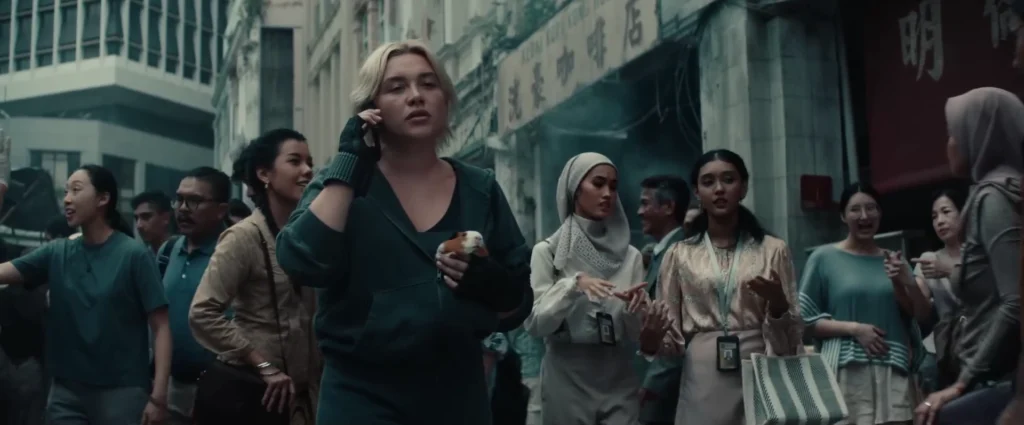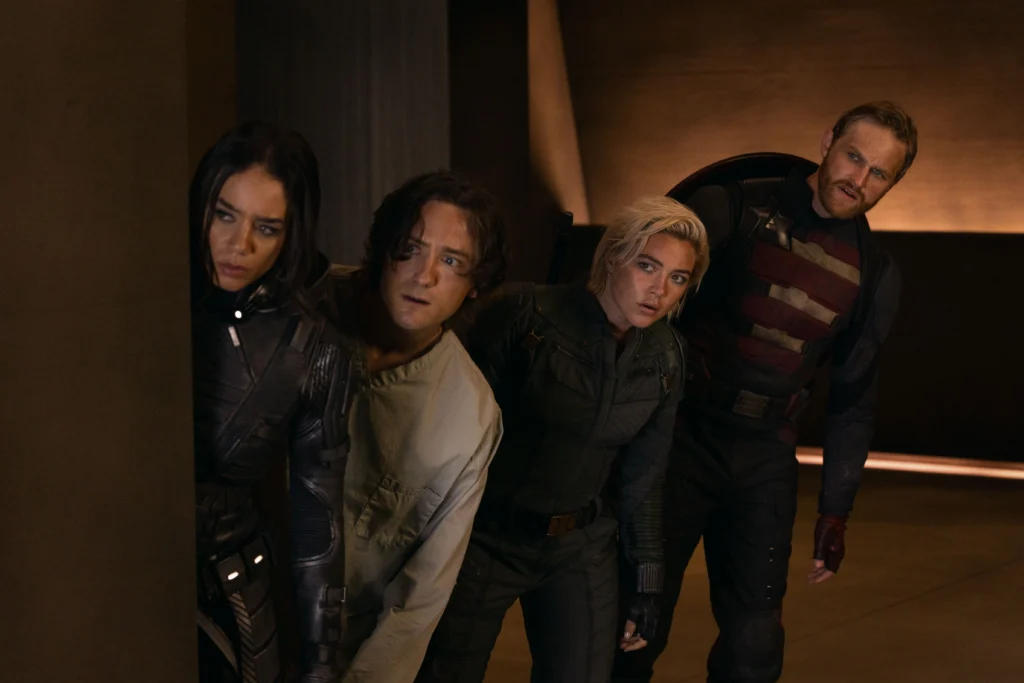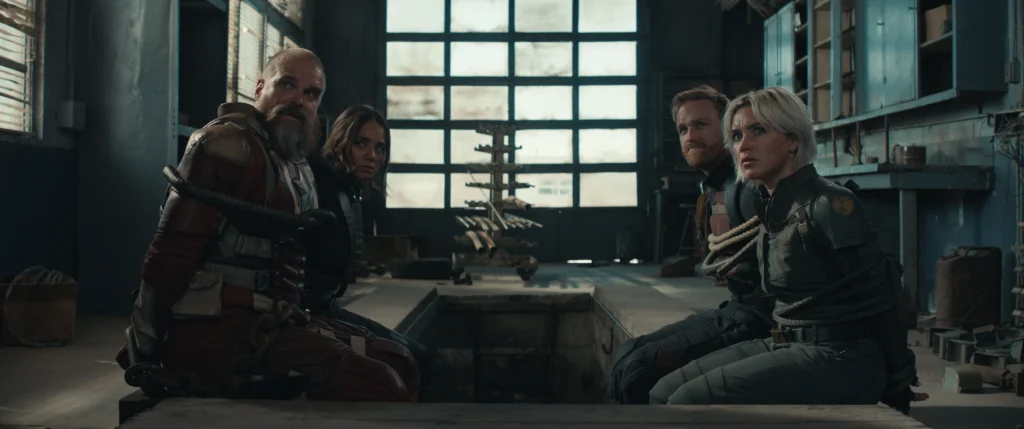The recent slate of MCU films has received a mixed reception, with some hits and several misses. While I’m a bit of a fanboy who watches everything, even I wouldn’t recommend every film to average movie-goer. Thunderbolts*, however, is a superhero film with strong character development and a surprising emotional core.
Marvel’s biggest cinematic successes often come from unexpected places. Iron Man was a B-Tier hero, but the success of his film launched the entire MCU. Thunderbolts* follows in that spirit with an ensemble film starring many of the MCU’s B-Tier superheroes.
Yelena, Natasha Romanoff’s sister, is joined by her eccentric father, the washed-up Red Guardian. Alongside them is John Walker, a failed Captain America, now going by the U.S. Agent. Ghost, a former Ant-Man antagonist, adds a supernatural edge to the team. Taskmaster returns as well, though still the least interesting of the bunch. Rounding out the squad is a man named Bob, whose very name screams B-Tier.

We do get a more well-known character in Bucky Barnes. His role is smaller, but it’s fun to watch him interact with this ragtag crew of misfits.
The film opens with Yelena, now working covert missions for Valentina de Fontaine. She’s bored, has no purpose, and wants more to life than just assassinations and explosions. Yelena becomes the emotional anchor of the film, holding it together from beginning to end.
When Valentina tries to manipulate the team into killing one another to cover up her criminal activity, they instead choose to work together. As the group begins to bond, aided in part by Bob’s mysterious abilities, we learn about the deep trauma each character carries. Yelena’s abusive training as a child. Walker’s fall from grace as a soldier. Bob’s struggles with mental illness and drug addiction.

Early on, we see the beginnings of a quiet bond between Yelena and Bob. He masks his pain with humor and bravado, but she sees through the facade. She understands because she’s lived through her own suffering.
That connection becomes the film’s emotional payoff. When a new enemy arises, with powers rivalling both Captain Marvel and the Scarlet Witch combined, the team finds themselves outmatched. Their guns and blades, or even Ghost’s powers, can’t defeat an enemy like this.
Surprisingly, the answer isn’t violence. It’s love. The final confrontation is won notwith brute strength, but with empathy. Yelena reaches out, recognizes the villain’s pain, and connects through compassion. It’s not a battle of fists, but of understanding.

The film’s most powerful message is this: those who have suffered trauma can often see others more clearly, and help them through pain. Yelena learns this, as do the rest of the Thunderbolts. A man consumed by uncontrollable power can’t save himself. But Yelena can reach him, because she knows what it’s like to be broken.
Thunderbolts* isn’t about being the strongest. It’s about surviving pain, seeing it in others, and choosing to care anyway. In a world of gods and super soldiers, sometimes the bravest thing you can do is hug someone and mean it.



